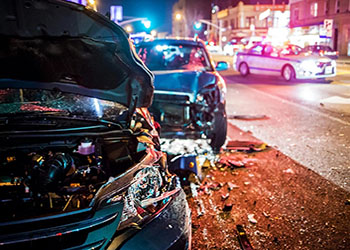
Beware of anyone claiming to be a savior, especially when they make money from it. This principle has applied in many unfortunate situations throughout history, and today it applies in a new, unexpected place: ride-sharing services like Uber and Lyft. Central to the pitch that ride-sharing should be as unregulated and underpaid as possible is the idea that easy access to ride-sharing prevents deaths from driving under the influence. So appealing has the idea of reducing fatal crashes through “transportation network companies” been that Mothers Against Drunk Driving (MADD) recently declared support for California Proposition 22, which would curtail the state’s ability to apply worker protection laws to these companies’ drivers.
There’s only one problem: a preponderance of peer-reviewed academic research shows this idea isn’t true.
Alcohol Justice confronted this myth in the context of extended last call times in 2017. At the time, the authors of the bill argued that there would be no impact on DUI rates because of the easy access to Uber and Lyft. The subsection of our report challenging this myth is linked below, but since that was published a number of additional compelling analyses have emphatically shown a) that alcohol-related traffic deaths do not go down when Uber or Lyft are introduced to an area, and b) that binge drinking and other harmful use patterns actually increase along with the introduction of ride-sharing.
Reports debunking the Uber and Lyft as DUI death prevention methods include:
- A 2019 paper in the Journal of Epidemiology and Community Health, showing that alcohol-related deaths did not change when Uber began service in South Africa. https://jech.bmj.com/content/73/3/263.info
- A 2020 article in Journal of Epidemiology and Community Health comparing government interventions in Chile to the introduction of Uber, and finding that the former decreased alcohol-related eaths while the latter had no effect. https://jech.bmj.com/content/74/6/502
- A white paper looking at alcohol-related fatalities in London, Ontario (coincidentally, the site of a lot of strong research on the effects of last call times on motor vehicle crashes), which found no association between Uber and alcohol-related crashes. In fact, the researchers found that alcohol-related crashes went up after ride-sharing was introduced, though the finding was not statistically significant.https://assets.researchsquare.com/files/rs-27741/v1/917a2d29-a37d-4fe6-a106-f76521655fd6.pdf
- A 2020 article in PLoS ONE modeling the effects of the introduction of Uber into 100 United States metropolises, finding that not only is Uber not associated with a decrease in alcohol-related traffic deaths, but it is associated with an increase in all-cause traffic deaths. https://journals.plos.org/plosone/article?id=10.1371/journal.pone.0238744
- Another 2020 paper looking at Uber across multiple U.S. metropolitan areas found that there was no effect on intoxicated driving with the introduction of Uber, but a significant increase in binge drinking. https://www.sciencedirect.com/science/article/abs/pii/S0166046220302799
The effect on binge drinking has been noticed in at least two other pre-publication papers. This finding is more ambiguous than the effect on dangerous driving; among other things, alcohol consumption, including binge drinking, has been increasing nationwide over the past two decades. But it is hard to ignore the possibility that an endorsement of ride-sharing from an organization like MADD, easily the most high-profile organization working to combat alcohol harm, makes people think that if they can get home “safely” then there are no other consequences to overconsumption.
As these ride-sharing companies grow in financial—not to mention political—clout, it is important that community advocates confront their fables. The myth that Uber prevents fatal DUI should be buried alongside the myth that “light cigarettes prevent cancer” and “a high-sugar diet is fine if you avoid cholesterol”. The only way to prevent deaths from alcohol is to confront and disempower those who profit from alcohol. And if Uber and Lyft insist on spreading this falsehood, then they should be consider alcohol profiteers as well.
READ MORE about how we cannot rely on Uber and Lyft, from the Alcohol Justice’s 2017 “Late Night Threat” report
READ MORE about the increase of binge drinking in the United States
